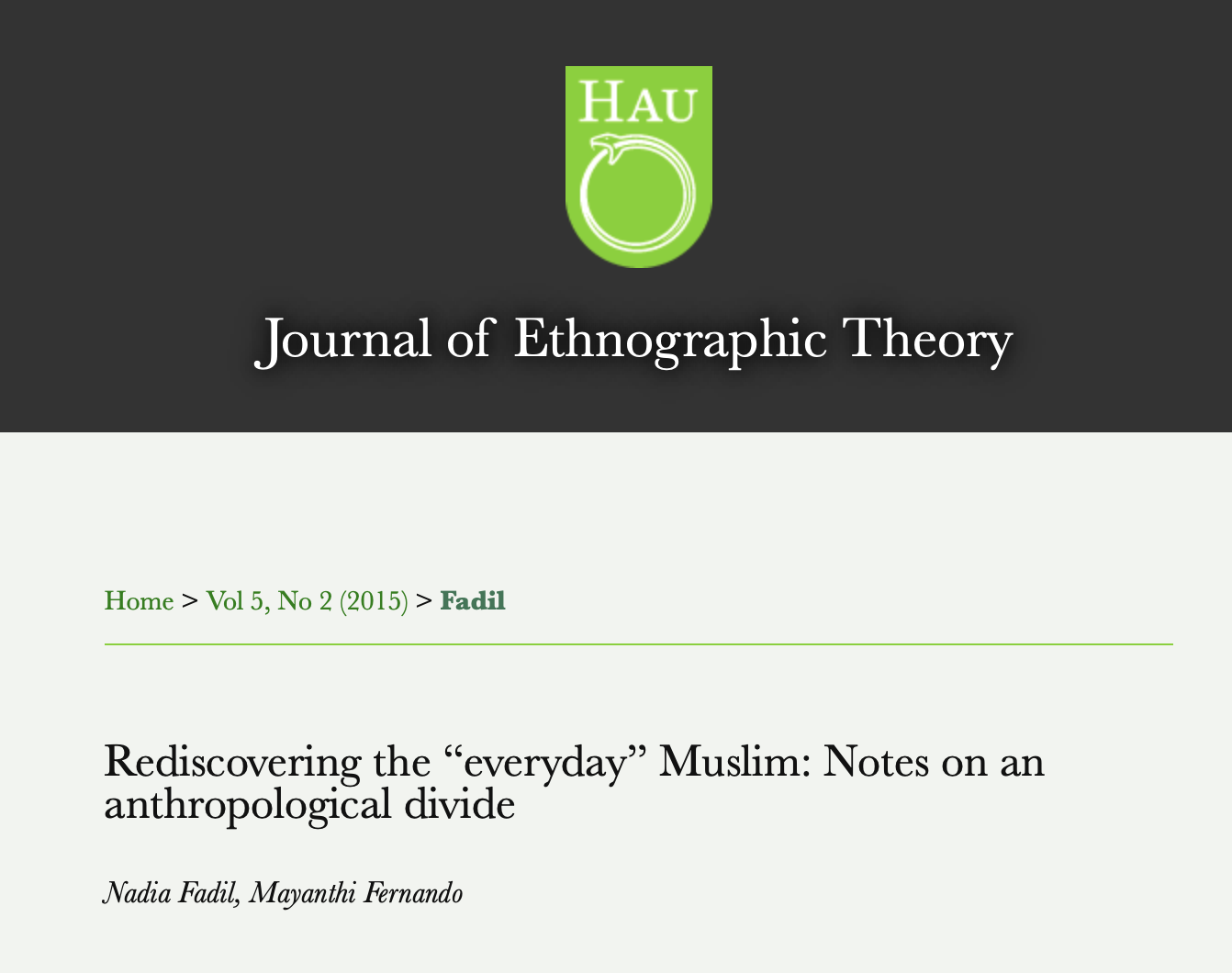
Rediscovering the “Everyday” Muslim: Notes on an Anthropological Divide by Nadia Fadil and Mayanthi Fernando
Being Good in Ramadan: Ambivalence, Fragmentation, and the Moral Self in the Lives of Young Egyptians by Samuli Schielke
1/3/2023, 12.15-2pm CET
Fadil / Fernando: This article critically examines recent calls by anthropologists to focus on what they call “everyday Islam.” We locate this new literature within two tensions central to anthropology: first, its dual commitment to humanity’s heterogeneity and commonality, and second, its dual imperative to account for dominant social structures and individual resistance. We argue that the concept of everyday Islam emphasizes one side of these paradigmatic debates, highlighting the universality of humans and emphasizing opposition to norms. We then take up the distinction this literature makes between everyday Muslims and Salafi Muslims. We suggest that a reinvestment in everyday Islam ends up discounting the validity, reality, and ontology of those framed as Salafi Muslims and invalidates ethnographic inquiry into ultra-orthodox Muslim life. Even as scholarship on everyday Islam attempts to expand the anthropology of Islam, then, it restricts the field instead by demarcating anthropology’s proper object of study in a very narrow way.
Schielke: So much has been written in recent years on Muslims who consciously and consistently aim to be pious, moral, and disciplined that the vast majority of Muslims who – like most of humankind – are sometimes but not always pious, at times immoral, and often undisciplined have remained in the shadow of an image of Islam as a perfectionist project of self-discipline. Taking the month of Ramadan, as a time of exceptional piety, as a starting-point, this paper tries to account for the different views and experiences that young people of Muslim faith in a northern Egyptian village articulate, the models of action and subjectivity they have access to, and the contradictory outcomes that the Islamic revivalist ideal of perfection has for some of them.
